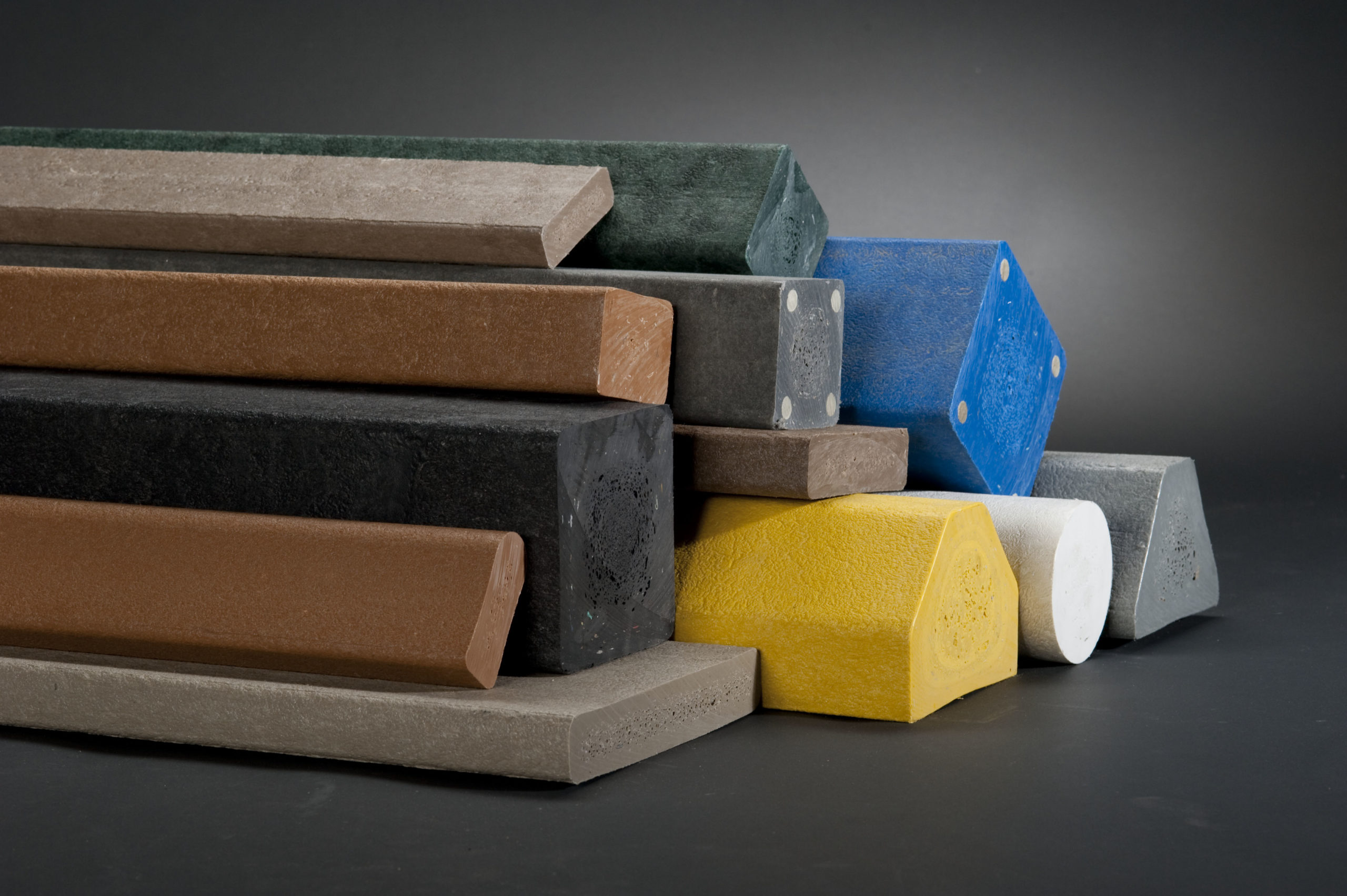Checking out the Benefits of Composites in Construction
Checking out the Benefits of Composites in Construction
Blog Article
Discovering the Uses and Advantages of Recycled Composites in Modern Industries
The amalgamation of recycled products with innovative composite modern technologies presents a promising avenue for improving sustainability, strength, and cost-efficiency across various fields. As markets look for innovative options to deal with environmental issues and enhance functional effectiveness, the consolidation of recycled composites arises as a compelling choice.
Environmental Benefits of Recycled Compounds
The utilization of recycled compounds in modern markets uses significant ecological benefits, contributing to the decrease of waste and the preservation of natural deposits. By including recycled compounds into manufacturing processes, industries can decrease their dependence on virgin products, thus lowering the quantity of waste created and the power required for removal and manufacturing. This change in the direction of making use of recycled compounds assists in diverting materials from garbage dumps, easing the worry on waste management systems, and decreasing greenhouse gas exhausts associated with typical manufacturing techniques.
Additionally, using recycled compounds promotes the conservation of natural deposits such as wood, minerals, and water, which are frequently depleted via the removal and processing of basic materials (composites). By expanding the life expectancy of products through recycling, sectors can help maintain environments and biodiversity by decreasing the demand for new sources. In general, the fostering of recycled compounds in modern markets plays an essential role in advertising sustainability and alleviating the ecological effect of manufacturing processes
Improved Toughness in Product Manufacturing
With a focus on durability and effectiveness, integrating recycled compounds right into item manufacturing processes boosts longevity and sustainability. By using recycled compounds, producers can create products that are not only strong however also immune to tear and wear, making them suitable for long-term usage in different sectors. The mix of different materials in recycled compounds can often lead to boosted stamina and durability compared to traditional products, giving an affordable service for generating long-lasting items.
Among the vital advantages of utilizing recycled compounds in item manufacturing is the capacity to tailor the material residential properties to satisfy details sturdiness demands. By changing the structure and manufacturing methods, producers can customize the recycled compounds to withstand severe environmental problems, heavy lots, or constant use without endangering on efficiency. This flexibility in style and production enables the development of highly resilient products that maintain their honesty gradually, decreasing the demand for frequent replacements and ultimately adding to a more lasting production process.
Cost-Effectiveness and Financial Advantages
Incorporating recycled composites into item production not only improves sturdiness and sustainability but also provides considerable cost-effectiveness and financial benefits. Utilizing recycled compounds can bring about minimized product costs as recycled products are often cheaper than virgin products. Furthermore, recycling composite materials can reduce waste disposal costs and lower the need for landfill room, adding to overall expense financial savings for markets.

Innovation and Layout Adaptability With Recycled Composites
Utilizing recycled composites in modern-day industries uses unparalleled possibilities for advancement and design adaptability. By incorporating recycled products into composite production processes, business can press the boundaries of standard style constraints and explore brand-new opportunities. The convenience of recycled compounds permits the development of complex forms and frameworks that may not be attainable with standard check over here products.
Among the crucial advantages of recycled composites is their capacity to be built into various forms, giving developers the freedom to experiment with special sizes and shapes. composites. This versatility opens a world of innovative chances, enabling the growth of lightweight yet sturdy items that satisfy the specific needs of various sectors
Moreover, the usage of recycled composites advertises lasting methods and sustains the circular economy by lowering waste and lessening the environmental effect of producing processes. This emphasis on eco-friendly style remedies straightens with the expanding fad towards sustainability in contemporary industries, making recycled composites a valuable resource for innovative and forward-thinking companies.
Applications Throughout Numerous Industries
Recycled composites locate diverse and impactful applications across a vast variety of sectors as a result of their unique properties and sustainability benefits. In the auto sector, these materials are increasingly utilized for producing durable and lightweight parts, boosting gas performance and lowering carbon exhausts. The aerospace sector take advantage of recycled composites in the production of airplane components, where the products' strength-to-weight ratio is crucial for making sure safety and security and performance. In construction, these composites are utilized for creating strong yet environmentally friendly structure products, adding to sustainable facilities development. The renewable resource field employs recycled compounds in wind turbine blades and solar panels, using their stamina and resistance to harsh environmental conditions. In addition, the marine industry uses these products for producing watercraft hulls and elements, providing enhanced toughness and rust resistance. The versatility and sustainability of recycled compounds make them valuable across numerous sectors, driving advancement and ecological stewardship. composites.
Conclusion
In verdict, the application of recycled compounds in modern sectors offers substantial environmental benefits, enhanced durability in item manufacturing, cost-effectiveness, and economic advantages. The usage of recycled composites enables for technology and design flexibility across various sectors. In general, the adoption of recycled composites provides a practical and sustainable remedy Continued for fulfilling the requirements of the market while likewise lowering environmental impact.

One of the key advantages of utilizing recycled composites in product production is the capacity to customize the product residential properties to meet specific toughness needs. Utilizing recycled composites can lead to minimized product expenses as recycled products are commonly much less expensive than virgin materials. The aerospace industry advantages from recycled compounds in the production of airplane parts, where the materials' strength-to-weight proportion is critical for making certain safety and security and performance.
Report this page